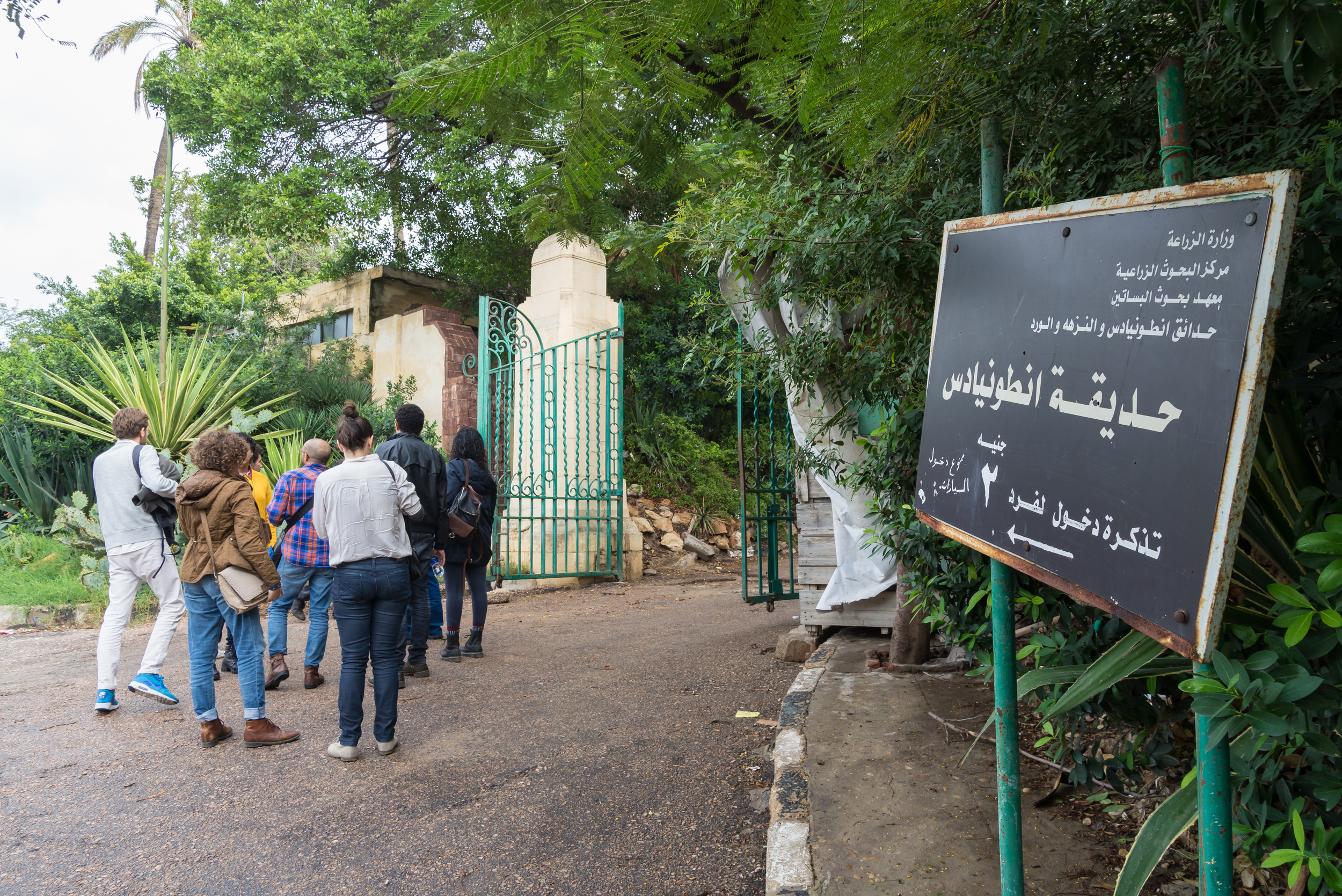Postponed Dates on a Disappearing Coast
Two days happening in Alexandria, Egypt
16–17 November 2015, Alexandria, Egypt
----------------------------------------------------------------
Curator: Omar Kholeif
Assistant Curator: Magda Magdy
Production and logistics: Fig Leaf Studios, Alexandria
Guests, observers and participants included Christodoulos Panayiotou, among a group of invited artists and writers
Programme
Day1
11:30 am-..12:30 pm: Antoniades garden, Gamal Al Dawly, text written by Alaa Khaled, performed by Alaa in Arabic and Sarah Maher in English. 13:00 pm-..14:30 pm: Zoo - Murakami’s The Elephant Vanishes, performed by Magda Magdy.
Day 2
11:00 am 12:00 am: Chez Cavafis - Parts of Susan Sontag’s Against Interpretation, performed by the Qassem twins. 12:30 am –13:30 pm: Mina al basal tour. 13:30 pm–14:00 pm: Al Anfoshy boats workshop - Rilke’s Letters to a Young Poet, performed by Mariam Boctor. 18:00: Greek Cultural Center - Christodolous perfoming a selection of Cavafis poems in Greek and Mahmoud Khaled performing in Arabic, followed by drinks.
----------------------------------------------------------------------------------------------------------------------------------------------------------------------------------------------------
In the context of Christodoulos Panayiotou’s solo exhibition, Two Days After Forever at the Cyprus Pavilion at the 56th Venice Biennale, a number of activations have emerged. Two performances conceived by Panayiotou, The Parting Discourse and Levant U-Turn, took place during the opening days of the biennale. The former occurred between the stage of Teatro Goldoni and the Cyprus Pavilion on 6 May, while the latter saw participants delve into the Mediterranean on 8 May.
The final act further examined the pavilion’s themes of memory and memorialisation, and the notion of Cyprus as a gateway to the Global South. It saw participants swim across the stretch of the Mediterranean to Alexandria, for a two-day happening entitled Postponed Dates on a Disappearing Coast. Conceived by artist Mahmoud Khaled, this awakening sought to examine the pavilion’s discursive concept of time through an examination of the city of Alexandria. Here, Khaled explored the city’s significance for artists, writers and filmmakers throughout history. How does the imaginary form of the city exist today, has it fallen into an endless loop of loss and nostalgia: melancholy and romanticism?
Khaled presented a newly conceived psycho-geographical reading of this territory using his own art education in the city as a starting point. Over two days, the artist explored sites frequented by the Alexandria University Fine Art department and considered how they were used as locations for academic study; these are places that were intended to hold the essence of the city, where young students from the school came to create their first drawings and paintings.
This proposal stems from ongoing research by Khaled on public state-run sites and parks in the city of Alexandria, which embody contentious political histories.
The locations examined within this happening were once spectacular in aesthetic and in their dimensions. Indeed, these sites had become a destination for generations of young people, and particularly art students (including Khaled) seeking natural vistas worthy of a landscape study or figurative subjects during their academic training. Today, neglect by the authorities has transformed these sites into near-ruins; fragments awaiting continued decay, like the city that houses them.
Links & Texts:






































































